Food Insecurity
The Maple Leaf Centre for Food Security is committed to working collaboratively across sectors to reduce food insecurity in Canada by 50% by 2030.
What is food security and what is food insecurity?
People are food secure when they have stable access to nutritious, affordable, and culturally appropriate food. People who are food insecure worry about running out of food, may compromise on food quality or quantity and may need to skip meals because they don’t have access to money for food.
Food insecurity is a devastating social issue impacting health, academic and economic potential, and quality of life. It disproportionately affects racialized communities, people with disabilities, and other equity-deserving groups. We are working collaboratively across sectors to raise awareness of food insecurity, advocate for critical policies, and invest in scalable programs required to reduce food insecurity.
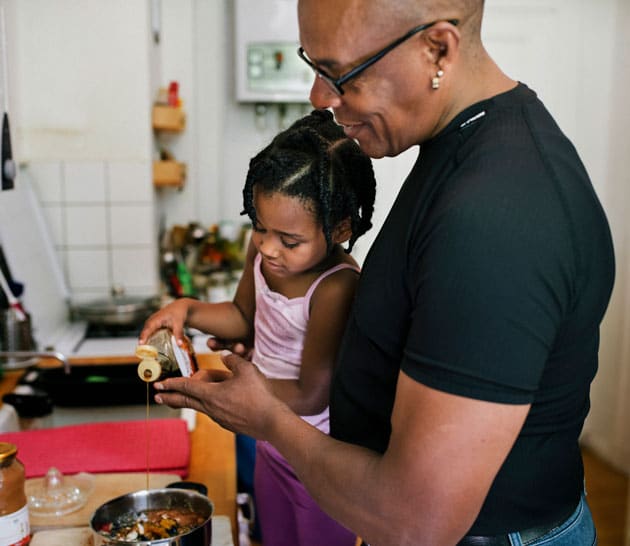

The Stats
Food insecurity is a crisis:
- Data published in 2024 reported almost nine million Canadians or 23% of families experience food insecurity, the highest numbers ever recorded in Canada.
See the source - Food insecurity is rising among children. Nearly 1 in 3 children in Canada live in a home that is food-insecure.
See the source - Black & Indigenous households have a rate of food insecurity that is 2-3 times higher than the national average.
See the source - 50% of people over the age of 15 living in food-insecure households have a disability.
See the source - Poverty has declined while food insecurity has been increasing. Eight in 10 food insecure families are living above Canada’s official poverty line, indicating that food insecurity is influenced by various factors including the stability of income, assets and debt, access to family and social supports, and the cost of living.
See the source
About The Maple Leaf Centre for Food Security
Maple Leaf Foods is committed to shared value creation, including meaningful social change. That’s why we created an organization to make a lasting, positive impact on food insecurity in Canada – The Maple Leaf Centre for Food Security.
The Centre is a registered charity governed by a Board of Directors. Its goal is to work collaboratively across different sectors to reduce food insecurity in Canada by 50% by 2030.
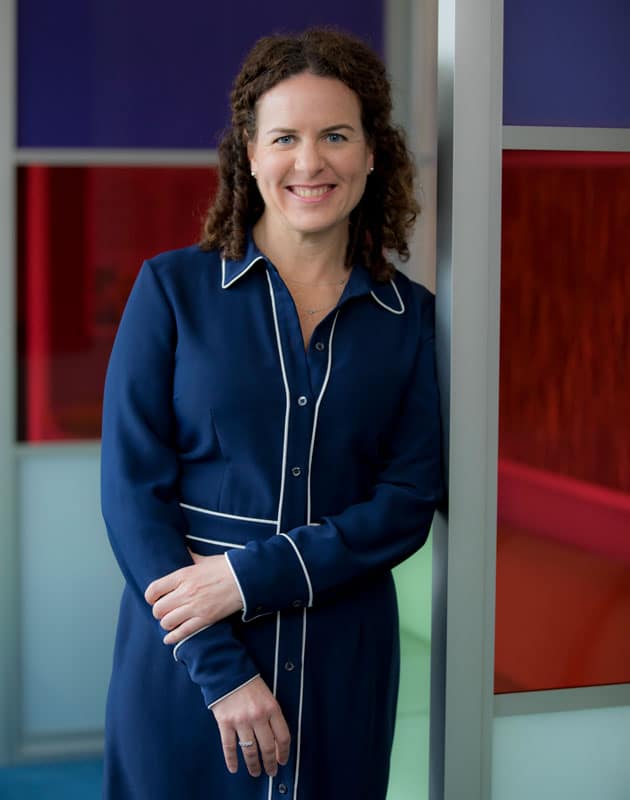

Key Centre accomplishments include….
- Committed more than $12.4 million to 33 initiatives seeking to address underlying drivers of food insecurity
- An employment readiness program with Harvest Manitoba that assists food bank clients in Winnipeg to gain skills in warehousing and logistics while receiving paid stipends, connections to peers, wrap-around supports, and job placements.
- The Carte Proximité program with Carrefour Solidaire Community Food Centre in Montreal that provides a monthly reloadable card to low-income families to purchase produce and other nutritious foods at markets and food retailers across the city
- FoodShare’s Supportive Partnerships Platform that supports food security initiatives led by Black, Indigenous, and People of Colour to grow and scale in Toronto, and the Upskilling series which provides virtual skill-building workshops for practitioners working to reduce food insecurity across the country.
- In 2023, we dove into the emerging world of food prescribing, an intervention that aims to improve health outcomes by providing food, money, or discounts on food purchases to people at risk for diet-related chronic disease and food insecurity. In April, we hosted an event with Canada 2020 in Ottawa to discuss the expansion of food prescribing in Canada and in June we convened a workshop facilitated by Dr. David Nabarro
- Families with children are one of the fastest growing groups of food-insecure households in Canada. In 2023, we partnered with the Government of Newfoundland and Labrador to jointly provide $1.8 million over three years to support food subsidies for low-income families with children
- Recognizing the importance of school food programs to children’s immediate access to food and nutrition, we also joined with several Canadian foundations to provide funding for Ontario’s Student Nutrition Program and First Nations Student Nutrition Program.
- As part of our ongoing effort to increase the knowledge base on food insecurity in Canada, the Centre provided four new Maple Leaf Board Chair Scholarships in Food Insecurity to Masters and PhD students from the University of New Brunswick, the University of Calgary, McGill University, and Dalhousie University. Maple Leaf Foods and the Centre will be supporting four new scholarships in the 2024-25 academic year.
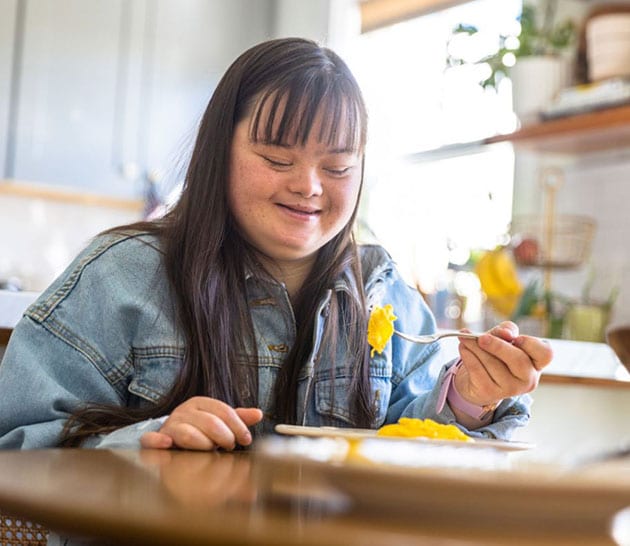

Food insecurity and disability
Across Canada, nearly seven million people are struggling to access sufficient food. And 50% of people experiencing food insecurity have a disability. That’s why The Centre advocates for the introduction of the Canada Disability Benefit. It would provide income needed to help those with a disability put food on the table and lead a life of dignity, autonomy, and independence.
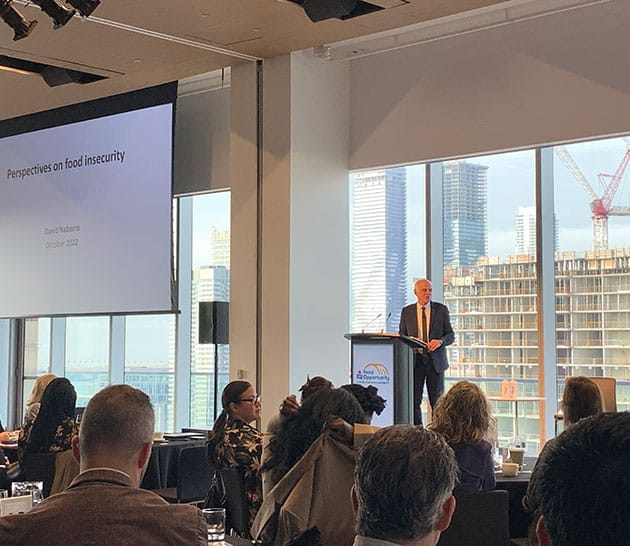

The annual Food Security Symposium
In November 2023, the Centre brought together more than 160 representatives from government, private and civil society at our annual Food Security Symposium. The Symposium unveiled new data on food insecurity, featured public policy and program experts, and shared different approaches to structurally reduce food insecurity and improve food access and health outcomes for vulnerable Canadians.
Partnering with organizations across Canada
Here are some of the organizations and projects we are supporting.
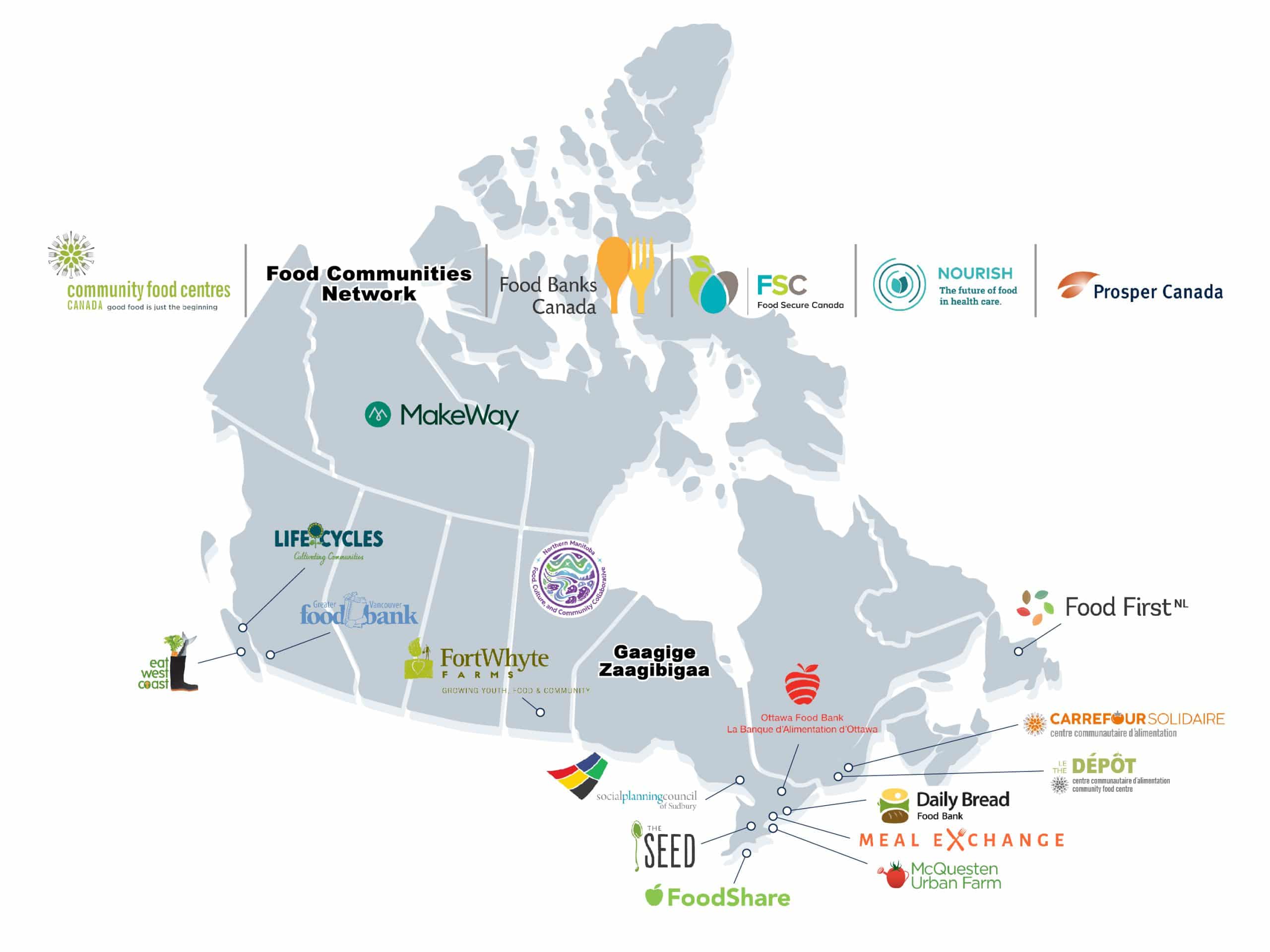

Here’s what our partners have to say about our working relationship:
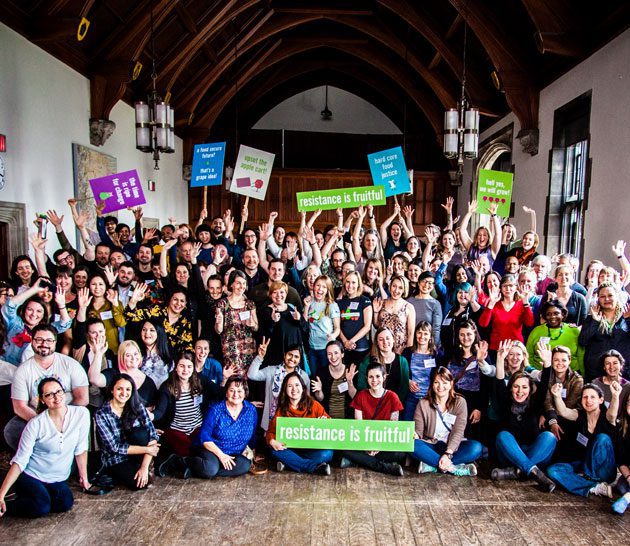

“The Centre has been an active supporter of Prosper Canada’s efforts to ensure that all Canadians are getting the income-boosting benefits for which they are eligible. Their contributions have helped us to reach over 300,000 Canadians to date with our Benefits Wayfinder initiative, to develop our Bridge to Benefits tool to help organizations provide access to benefit services, and to evaluate the impact of
these services on participant food security. Centre staff have also been invaluable thought partners in our advocacy efforts, helping to champion more accessible disability benefits for those who are entitled
to them. The Centre’s investments in expanding benefit access are building income security and food security in Canada and are deeply appreciated.”x
— Elizabeth Mulholland, CEO, Prosper Canada
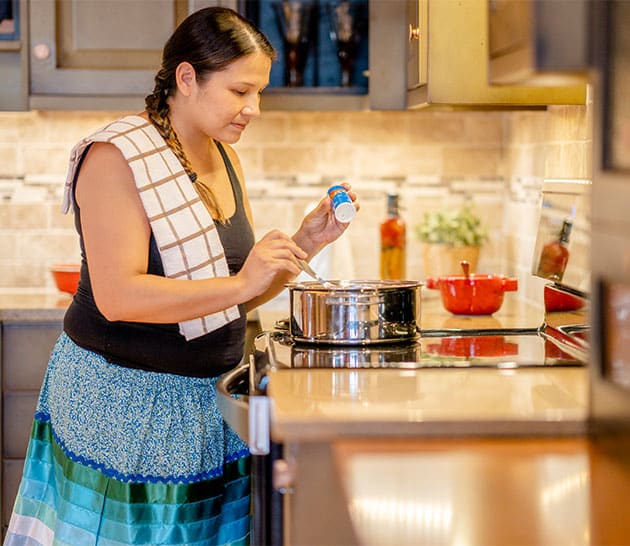

“Harvest Manitoba has always been about so much more than just hampers, we’re about hope. Through our partnership with the Maple Leaf Centre for Food Security, Harvest has been able to reestablish
important employment training programs for food bank clients in our warehouse in the postpandemic environment. Thanks to the hands-on approach and ongoing collaboration of the Centre in program improvements, today our training programs are not only back, but they are better than before, helping more food insecure individuals find pathways to meaningful employment.”
— Vince Barletta, CEO, Harvest Manitoba
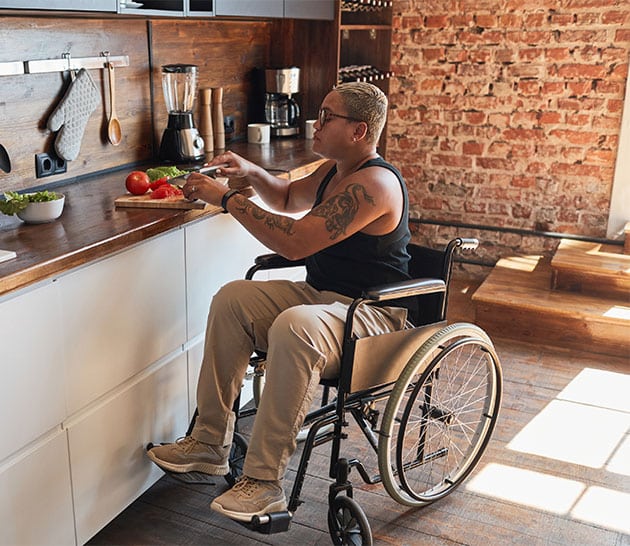

“In the Maple Leaf Centre for Food Security, we have found a partner as ambitious and invested as we are in exploring new ideas and rethinking old ones in order to reduce food insecurity in our communities. For the Carrefour Solidaire CFC, embodying the Right to Food through our programming means being deeply curious and listening carefully to our participants in order to pilot and scale creative, innovative interventions that respond to their needs. The Centre, in turn, listens to us carefully and helps share what we learn together with those who influence and create policy.”
— Beccah Frasier, Co-Executive Director, Carrefour Solidaire Community Food Centre
Integrated Report
We’re documenting and calculating all the changes we’re making. See our progress in our 2023 Integrated Sustainability Report.